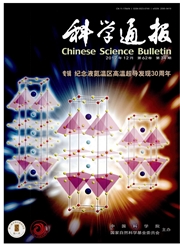

 中文摘要:
中文摘要:
创造力是人类心理机能的高级表现.迄今为止,已有相当多的证据表明高创造力人群罹患精神疾病(尤其情感障碍和精神分裂症谱系疾病)的风险高于一般人群.探索创造力和精神疾病的关系进而探讨创造力的本质和个体心理机制成为创造力研究的热点之一.但时至今日关于两者关系的认知神经机制和基因机制尚未完全明晰.本文结合行为、神经影像学和遗传学的研究证据,梳理和评述了有关创造力和精神疾病关联的实证研究和若干理论观点,系统探讨了创造力和精神疾病的深层关系.未来研究应加强创造力与精神疾病关系的理论整合与构建,并利用影像遗传学方法及大数据方法,在"基因-脑-环境-行为"的框架下,从微观、中间和宏观层次开展多层面、多学科的交叉整合研究,同时加强对亚临床人群的多中心联合、大样本研究并尝试纵向研究设计,以更深入地对创造力与精神疾病的关系、影响因素及深层生物学机制进行探索.
 英文摘要:
英文摘要:
Creativity has long been thought as the ability to produce original, novel, flexible, and useful ideas that are free from established mental habit. It is considered as an aspect of the fully functioning personality. However, the existence of a relationship between "creativity" and unusual mental states has been speculated on for centuries. Highly creative people have demonstrated elevated risk for certain forms of psychopathology, especially mood disorders and schizophrenia spectrum disorders. Empirically examining the connection between creativity and psychopathology, and then exploring the nature as well as the cognitive and neural mechanisms of creativity are currently hot research topics. However, within the scientific domain, previous literature reviews came to quite different conclusions. Based on evidence from the behavioral, neuroimaging and genetics studies, we first review and comment on empirical researches and principal theoretical viewpoints on the connection between creativity and psychopathology, and then explore systematically the inner relationship between creativity and psychopathology. These results provide support for the notion that creativity and psychiatric disorders, particularly schizophrenia and bipolar disorder, share psychological attributes. However, whether and to what degree this is due to shared environment or genetics has not been assessed and the exact relationship between creativity and psychopathology is still a contentious issue. The main challenge in supporting this claim is that the statement itself is very general. In addition, there are a number of issues that contribute to unclarity within this literature. One issue is the way in which "creativity" and "mental illness" are discussed. Another issue that contributes to confusion in the field is the use of various "creativity measures" that measure different facets of creativity across studies. To foster examination of potential relationships between creativity and mental illness, it would be prudent to use a
 同期刊论文项目
同期刊论文项目
 同项目期刊论文
同项目期刊论文
 期刊信息
期刊信息
